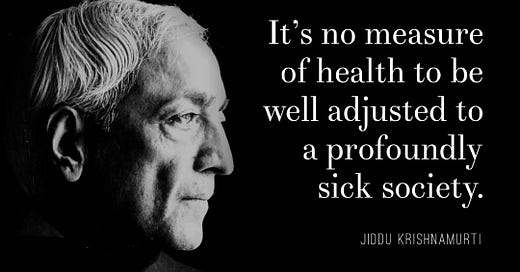Depathologization
A Mental Health Reformation - Unity In Neurodiversity
Reclaiming the Human Spirit
Like Martin Luther1 on October 31, 1517, this is the first nailing of a document known as the "7 Theses" knocking at the door of the Castle Church of Psychiatry and Materialism.
Let’s jump right in and not waste time. The following is just food for thought, it will be followed up with the “7 Theses” from which a movement will be born, the Mental Health Reformation.
Just as the process of decolonization seeks to dismantle the oppressive structures and narratives imposed by colonizers, the concept of depathologization aims to liberate the human spirit from the confines of pathologization. In our modern world, we have witnessed the pervasive pathologization of the human experience, where every aspect of our lives is scrutinized, labeled, and often deemed as dysfunctional or abnormal. This article explores the etymology of the terms "de-" and "pathologizing" and argues for the necessity of depathologization in reclaiming the inherent wholeness and resilience of the human spirit.
The prefix "de-" originates from Latin, meaning "off, away from, or down." It signifies a reversal, removal, or negation of the word it precedes. On the other hand, the term "pathologizing" stems from the Greek words "pathos" (suffering or disease) and "logos" (study or discourse). Pathologizing refers to the act of characterizing a phenomenon, behavior, or experience as abnormal, unhealthy, or indicative of a disorder.
Throughout history, various aspects of the human experience have been pathologized, often reflecting the dominant cultural, social, and political norms of the time. From the pathologization of women's emotions and desires to the stigmatization of mental health conditions, the human spirit has been subjected to narrow definitions of normalcy and health. This pathologization has served to maintain power structures, marginalize certain groups, and suppress the inherent diversity and complexity of the human experience.
Depathologization is a process of recognizing and challenging the pathologizing narratives that have been imposed upon the human spirit. It involves acknowledging the inherent wholeness and resilience of individuals and communities, regardless of their experiences, emotions, or ways of being. By depathologizing the human experience, we create space for a more inclusive, compassionate, and holistic understanding of mental health and well-being.
Depathologization may take many forms, including:
Challenging the medicalization of normal human experiences, such as grief, sadness, and anxiety.
Recognizing the role of social, cultural, and systemic factors in shaping mental health and well-being.
Embracing diverse expressions of emotions, behaviors, and experiences as valid and meaningful.
Empowering individuals and communities to define their own narratives and paths to healing.
Promoting a strengths-based approach that emphasizes resilience, agency, and self-determination.
Just as decolonization seeks to dismantle oppressive structures and reclaim indigenous ways of being, depathologization aims to liberate the human spirit from the confines of pathologization. By challenging the dominant narratives that have pathologized the human experience, we can create a more inclusive, compassionate, and holistic understanding of mental health and well-being.
Depathologization is a call to recognize the inherent wholeness and resilience of the human spirit and to embrace the diversity and complexity of the human experience.
Keep reading with a 7-day free trial
Subscribe to The Syntony Times: Hyperstitious Linguistic Programming to keep reading this post and get 7 days of free access to the full post archives.





